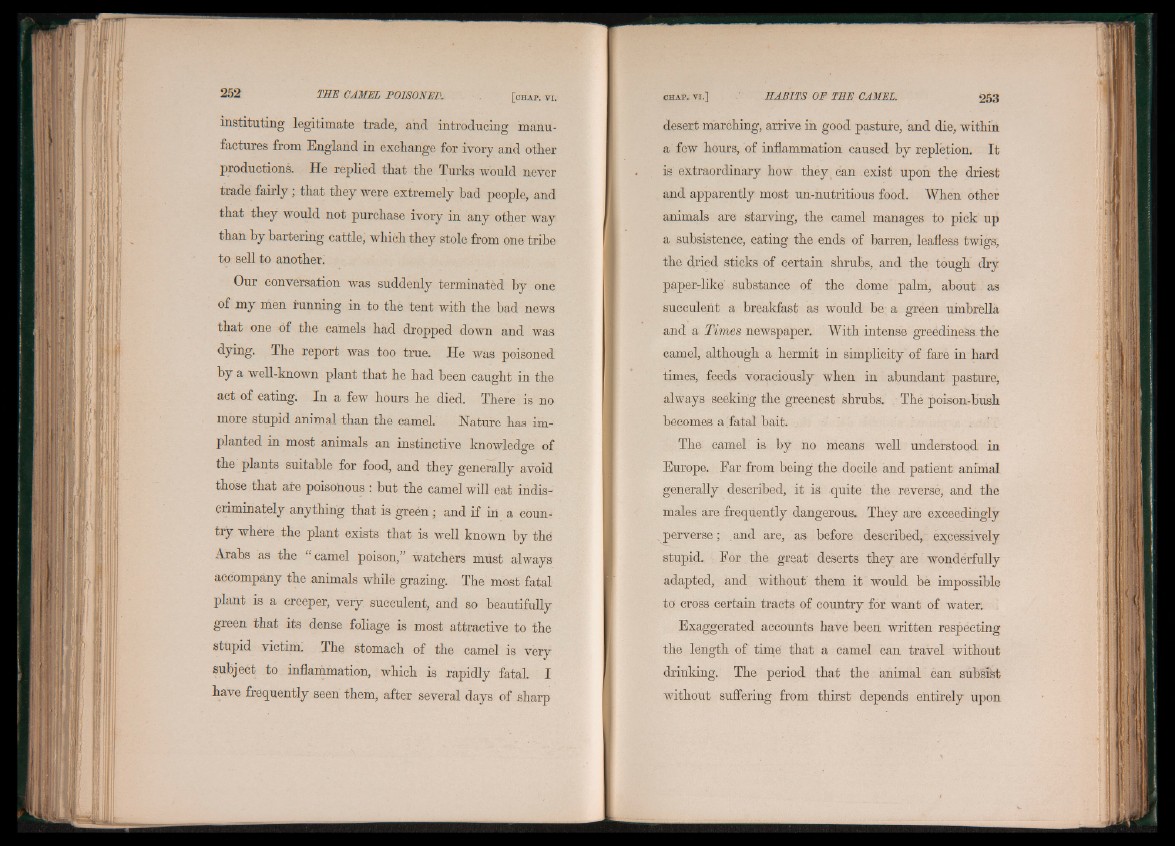
instituting legitimate trade, and introducing manufactures
from England in exchange for ivory and other
productions. He replied that the Turks would never
trade fairly ; that they were extremely bad people, and
that they would not purchase ivory in any other way
than by bartering cattle, which they stole from one tribe
to sell to another:
Our conversation was suddenly terminatèd by one
of my men running in to the tent with the bad news
that one of the camels had dropped down and was
dying. The report was too true. He was poisoned
by a well-known plant that he had been caught in the
act of eating. In a few hours he died. There is no
more stupid animal than the camel. Nature has implanted
in most animals an instinctive knowledgOe of
the plants suitable for food, and they generally avoid
those that ate poisonous : but the camel will eat indiscriminately
anything that is greén ; and if in a country
where the plant exists that is well known by the
Arabs as the “ camel poison,” watchers must always
accompany the animals while grazing. The most fatal
plant is a creeper, very succulent, and so beautifully
green that its dense foliage is most attractive to the
stupid victim. The stomach of the camel is very
subject to inflammation, which is rapidly fatal. I
have frequently seen them, after several days of sharp
desert marching, arrive in good pasture, and die, within
a few hours, of inflammation caused by repletion. It
is extraordinary how they can exist upon the driest
and apparently most un-nutritious food. When other
animals are starving, the camel manages to pick up
a subsistence, eating the ends of barren, leafless twigs,
the dried sticks of certain shrubs, and the tough dry
pàper-like' substance of the dome palm, about as
succulent a breakfast as would be a green umbrella
and a Times newspaper. With intense greediness, the
camel, although a hermit in simplicity of fare in hard
times, feeds voraciously when in abundant pasture,
always seeking the greenest shrubs. The poison-bush
becomes a fatal bait. . . '
The camel is by no means well understood in
Europe. Far from being the docile and patient animal
generally described, it is quite' the reversé, and the
males are frequently dangerous. They are exceedingly
perverse; .and are, as before described, excessively
stupid. For the great deserts they are wondérfully
adapted, and without them it would be impossible
to cross certain tracts of country for want of water.
Exaggerated accounts have been written respécting
the length of time that a camel can travel without
drinking. The period that the animal can subsist
without suffering from thirst depends entirely upon